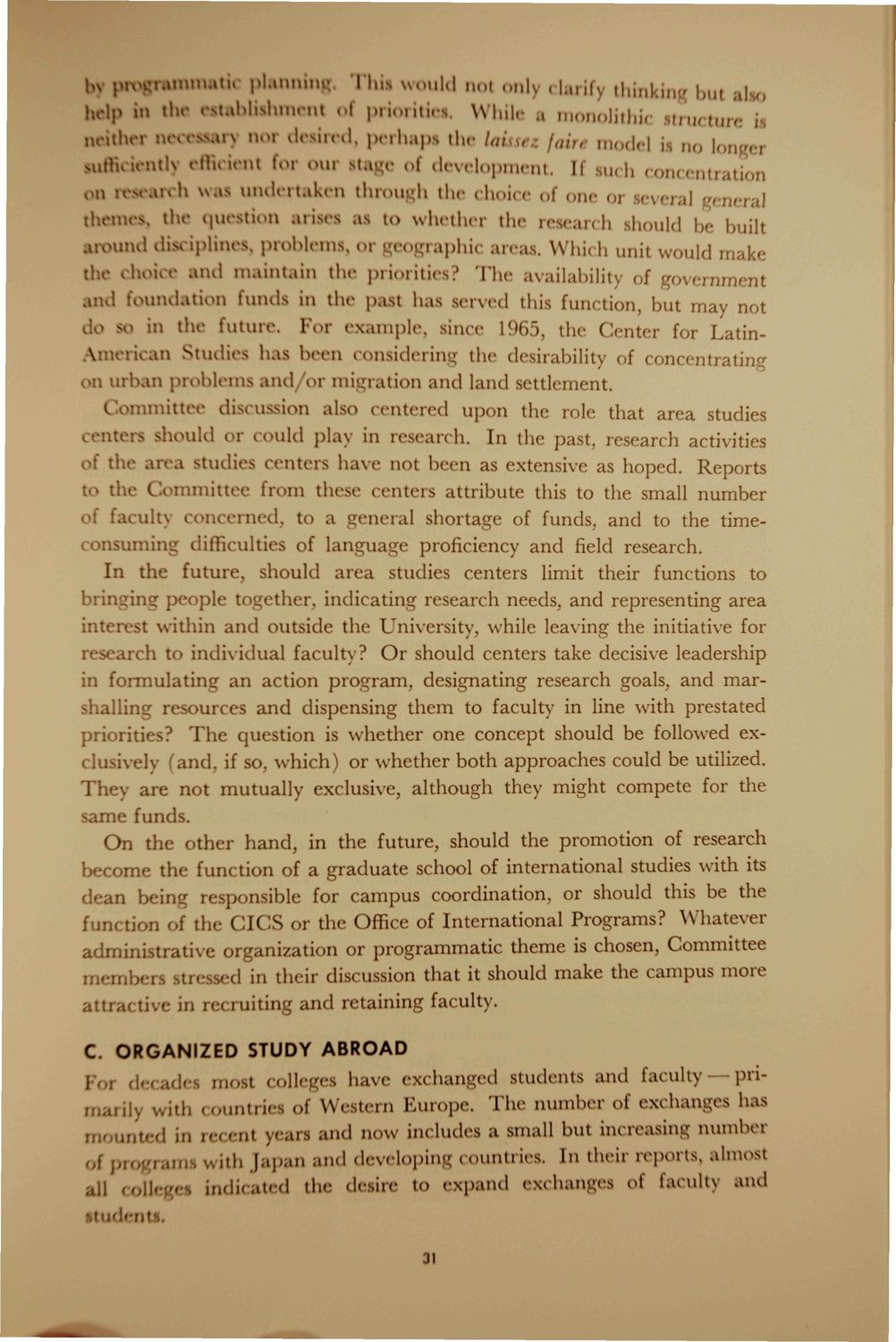| |
| |
Caption: Planning Report - Future of International Programs (1968)
This is a reduced-resolution page image for fast online browsing.

EXTRACTED TEXT FROM PAGE:
In , .uuuMtii planning I In uld noi onl) clarify thinkin- Ut ;,i hd| In the establishment ol prioritii While a monolithi< truct»r« neither iHvrwai n desired, perhaps the laisst fair* model i no loi lurticienth Hlident foi oui it age of development li uch concent,ation •n : ivh\\as undertaken through the dioice of one oi eral j eral themes, the question arises as to whether the research should be buil around di lines, problems, or gee iphic areas. Whi< h unit would mak the choice and maintain the priorities? The availability of wernn nt • • f\ Unerican Studies has been considering the desirability of concentrating on urban problems a n d / o r migration and land settlement. Committee discussion also (entered upon the role that area studies inters should or could play in research. In the past, re arch activities the area studies centers have not been as extensive as hoped. Reports to the C anitr from these centers attribute this to the small number t . :.t\ ( * -rued, to a general shortage of funds, and to the timeonsuming difficult of language proficiency and field research. In the future, should area studies centers limit their functions to b y \ oplc t ether, indicating research needs, and representing area inter- i within and outside the University, while leaving the initiative for arch to individual faculty? O r should centers take decisive leadership in fo aulating an action program, designating research goals, and marhailing r oun and dispensing them to faculty in line with prestated priorities? T h e question is whether one concept should be followed exclusively (and. if so. which) or whether both approaches could be utilized. They are not mutually exclusive, although they might compete for the same hand me the function of a graduate school of international studies with its being r< ponsible for campus coo ams adrnii trative organization or programmatic theme is chosen, Committee memh tressed in their discussion that it should make the campus more attractive in r< raiting and retaining faculty. C. ORGANIZED STUDY ABROAD cad « oil pn- HIOUI, in ie< ent ) »rs and now unhides a small inn meiea.Mm; numm • I ,,: ,;,), japan and developing countries. In their reports, almost dl colleges indi' < the desir «o expand exchanges of faculty and l •tudci ii
| |